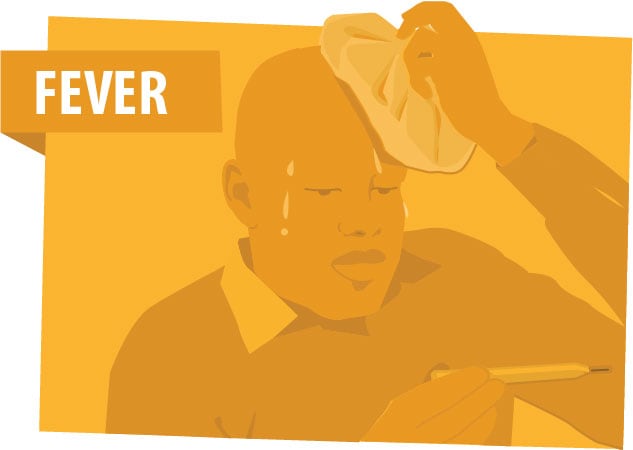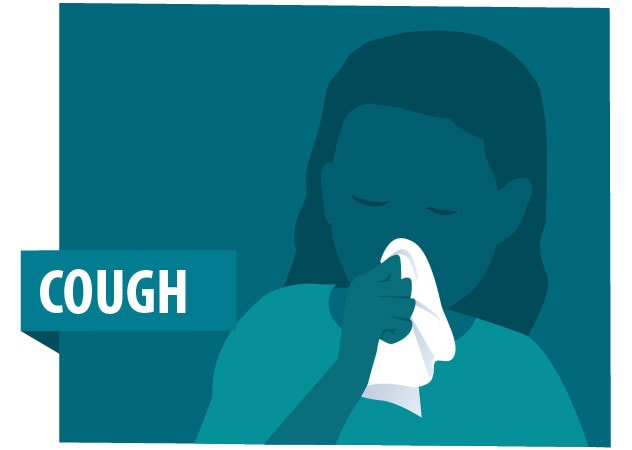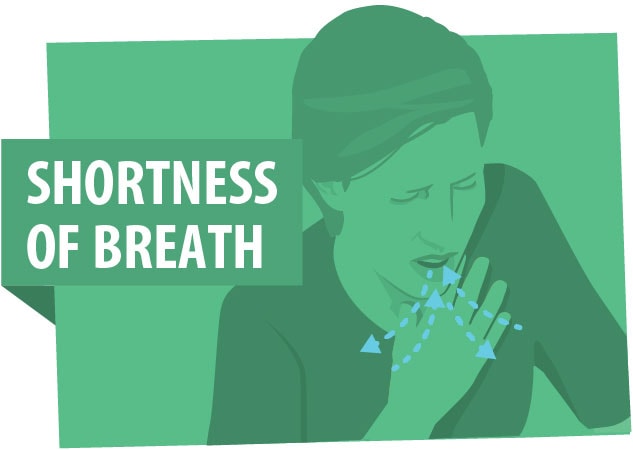As Coronavirus spreads faster than news of free cake in the break room (though, for the love of God, PLEASE wash your hands before partaking in said free office cake), the obvious question is: How will Coronavirus effect my surrogacy? So let’s discuss…
The Facts About COVID-19 (Coronavirus)
On January 30, 2020, the International Health Regulations Emergency Committee of the World Health Organization declared the outbreak a “public health emergency of international concernexternal icon” (PHEIC). On January 31, 2020, Health and Human Services Secretary Alex M. Azar II declared a public health emergency (PHE) for the United States to aid the nation’s healthcare community in responding to COVID-19.
Coronaviruses are a large family of viruses that are common in people and many different species of animals, including camels, cattle, cats, and bats. Rarely, animal corona viruses can infect people and then spread between people such as with MERS-CoV, SARS-CoV, and now with this new virus (named SARS-CoV-2).
The SARS-CoV-2 virus is a betacoronavirus, like MERS-CoV and SARS-CoV. All three of these viruses have their origins in bats. The sequences from U.S. patients are similar to the one that China initially posted, suggesting a likely single, recent emergence of this virus from an animal reservoir.
Early on, many of the patients at the epicenter of the outbreak in Wuhan, Hubei Province, China had some link to a large seafood and live animal market, suggesting animal-to-person spread. Later, a growing number of patients reportedly did not have exposure to animal markets, indicating person-to-person spread. Person-to-person spread was subsequently reported outside Hubei and in countries outside China, including in the United States. Some international destinations now have apparent community spread with the virus that causes COVID-19, as do some parts of the United States. Community spread means some people have been infected and it is not known how or where they became exposed. Learn what is known about the spread of this newly emerged coronaviruses.
Symptoms of Coronavirus
The complete clinical picture with regard to COVID-19 is not fully known. Reported illnesses have ranged from very mild (including some with no reported symptoms) to severe, including illness resulting in death. While information so far suggests that most COVID-19 illness is mild, a reportexternal icon out of China suggests serious illness occurs in 16% of cases. Older people and people of all ages with severe underlying health conditions — like heart disease, lung disease and diabetes, for example — seem to be at higher risk of developing serious COVID-19 illness.
Reported illnesses have ranged from mild symptoms to severe illness and death for confirmed coronavirus disease 2019 (COVID-19) cases. CDC offers testing guidance for COVID-19 here. If you have symptoms of COVID-19 (fever, cough, shortness of breath), contact your health care provider right away.
The following symptoms may appear 2-14 days after exposure.
- Fever
- Cough
- Shortness of breath



Surrogacy Pregnancy and the Corona Virus
Information regarding Coronavirus and pregnancy is spotty at best. This is mainly due to the fact that it has only been a few months since the first cases of Cornonavirus 2019 were diagnosed, so there just isn’t enough data to offer concrete statistics or advice. Much of the advice is based on the research done regarding similar viruses – SARS-CoV and MERS-CoV – and the outcomes observed over a longer period of time. Understandably, the void of accurate information on Coronavirus is disconcerting to surrogates and intended parents. Below we’ve gathered what the experts are saying on the top five questions regarding pregnancy and Coronavirus.
1. Are pregnant women a higher risk for contracting Coronavirus?
Yes, but pregnancy makes you susceptible to many illnesses, not just Coronavirus. According to the CDC, pregnant women experience immunologic and physiologic changes which might make them more susceptible to viral respiratory infections, including COVID-19. Dr. Brennan Fitzpatrick, director of Perinatal Medicine and Ultrasound at Deaconess Women’s Hospital in Evansville, IN, explained the potential effects the virus could have on pregnant women in a recent interview. He says it’s not that pregnant women’s immune systems are weak, but it’s what happens to their bodies during pregnancy that makes them more at risk. A women’s respiratory and immune systems change during pregnancy. These changes make them part of the high-risk population for coronavirus, just like they are for influenza and pneumonia.
2. Will Coronavirus put a pregnancy at risk?
Possibly, but it’s about the symptoms, not the specific virus. According to the CDC, pregnancy loss, including miscarriage and stillbirth, has been observed in cases of infection with other related coronaviruses [SARS-CoV and MERS-CoV] during pregnancy. High fevers during the first trimester of pregnancy can increase the risk of certain birth defects. MotherToBaby.org* states that miscarriage can occur in any pregnancy, and studies have not been done to see if getting a coronavirus during pregnancy could increase the chance of miscarriage. In reports of pregnant women who had SARS in the first trimester, 4 out of 8 pregnancies ended in miscarriage. There is not enough information to know if the miscarriages were caused by the virus, the severity of the mother’s illness, or other reasons. More research is needed to know how coronavirus infection could affect a pregnancy. Additionally, according to MotherToBaby.org, a high fever in the first trimester can increase the chance of certain birth defects (see MotherToBaby’s fact sheet: https://mothertobaby.org/fact-sheets/hyperthermia-pregnancy/). If you get sick with a coronavirus or any other illness and develop a high fever, please speak with your healthcare provider as soon as possible to discuss the best way to lower it.
*MotherToBaby.org is a service of the non-profit Organization of Teratology Information Specialists (OTIS), is the nation’s leading authority and most trusted source of evidence-based information on the safety of medications and other exposures during pregnancy and while breastfeeding.
3. Can pregnant women with Coronavirus COVID-19 pass the virus to their fetus or newborn (i.e. vertical transmission)?
Not likely. According to the CDC, the virus that causes COVID-19 is thought to spread mainly by close contact with an infected person through respiratory droplets. Whether a pregnant woman with COVID-19 can transmit the virus that causes COVID-19 to her fetus or neonate by other routes of vertical transmission (before, during, or after delivery) is still unknown. However, in limited recent case series of infants born to mothers with COVID-19 published in the peer-reviewed literature, none of the infants have tested positive for the virus that causes COVID-19. Additionally, virus was not detected in samples of amniotic fluid or breastmilk.
4. Are infants born to mothers with COVID-19 during pregnancy at increased risk for adverse outcomes?
Possibly, but there are conflicting reports among experts. It is too soon to know the consequences for babies born to women who have Coronavirus. As reported in The New York Times, the infants born to women with a Coronavirus infection seemed free of the virus and appeared healthy at birth, according to a study of nine pregnant women and their babies published last month in The Lancet. “Fortunately, there was no evidence of vertical transmission from mother to child,” said Dr. Wei Zhang, an epidemiologist at Northwestern University and one of the Lancet study’s authors.
However, the CDC is saying otherwise. Based on limited case reports, adverse infant outcomes (e.g., preterm birth) have been reported among infants born to mothers positive for COVID-19 during pregnancy. However, it is not clear that these outcomes were related to maternal infection, and at this time the risk of adverse infant outcomes is not known. Given the limited data available related to COVID-19 during pregnancy, knowledge of adverse outcomes from other respiratory viral infections may provide some information. For example, other respiratory viral infections during pregnancy, such as influenza, have been associated with adverse neonatal outcomes, including low birth weight and preterm birth. Additionally, having a cold or influenza with high fever early in pregnancy may increase the risk of certain birth defects. Infants have been born preterm and/or small for gestational age to mothers with other coronavirus infections, SARS-CoV and MERS-CoV, during pregnancy.
5. Is it OK for pregnant women to travel?
Use your best judgement. According to a report on Good Morning America, there is no guidance that pregnant women should not travel, so it’s ultimately a personal decision. Pregnant women should consult with their doctors first. Factors to consider include where you’re considering traveling, how far along in your pregnancy you are and what your backup plan would be. In addition to considering whether the country in question has seen a significant influx of COVID-19 cases, think about the situation on ground. Has travel within the country been disrupted? How would you feel about potentially being quarantined upon returning to the United States? Is there a risk you could be grounded due to canceled flights or quarantines and not be able to travel home? Would you have access to medical care at your destination? The U.S. State Department provides travel advisories that include up-to-date recommendations about which countries have reported cases of COVID-19 and how widespread infections have been. The situation is fluid and rapidly evolving, so you should check back often and use that information to inform what’s essentially a personal decision.
1 thought on “Five Things You Need to Know About Surrogacy and Coronavirus”
Thank you for addressing the concerns with the Coronavirus Viruses and it’s effects on surrogacy. This knowledge will help everyone by answering their concerns and what needs to be done to protect the baby.